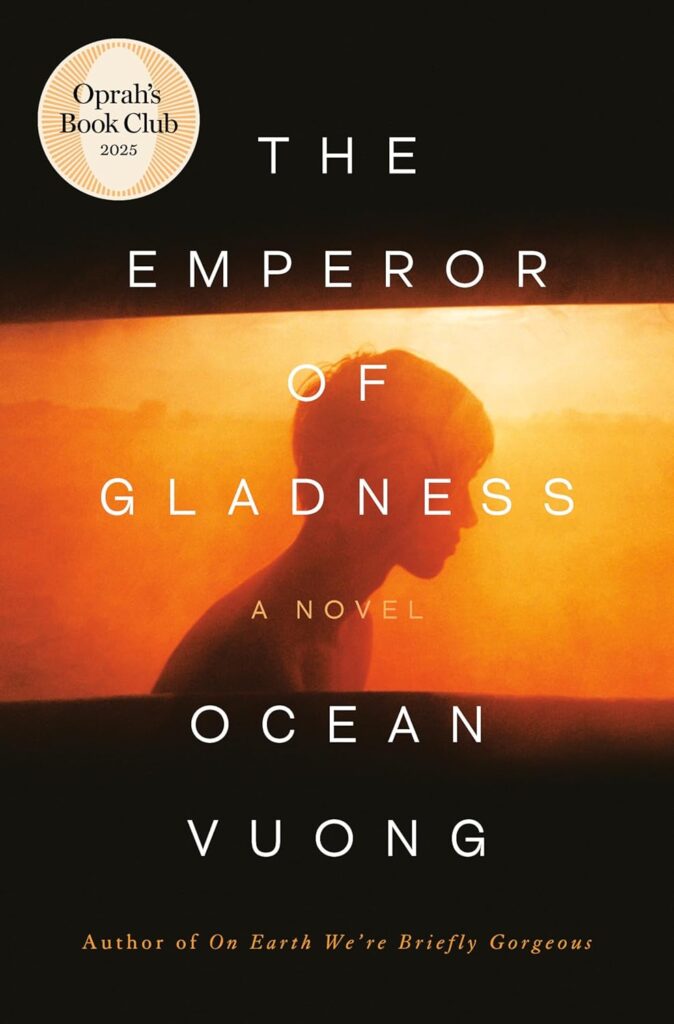The Emperor of Gladness: A Stark, Poetic Indie Drama Waiting for the Screen
If Manchester by the Sea and Eternal Sunshine of the Spotless Mind had a literary child, it might look a lot like Ocean Vuong’s The Emperor of Gladness. Cinematic in mood and elliptical in structure, this novel reads like an arthouse film script — raw, lyrical, and aching to be adapted by someone like Chloé Zhao or Barry Jenkins.
At its center is Hai, a 19-year-old college dropout and opioid addict, whose life detours from a suicide attempt to working in a New England fast-casual restaurant while caring for an elderly woman with dementia. It’s a premise that might sound bleak, but Vuong renders it with such surreal tenderness that it almost glows. You can imagine Dev Patel or a younger Alex Wolff carrying Hai’s pain with quiet intensity, framed in wintry blue tones and long silences.
The novel’s flashes of violence — from a pig slaughter in a backyard to post-war memories and the ghosts of diaspora — are not action sequences, but emotional tremors. In the right hands, they’d translate into powerful cinematic moments of memory and metaphor, rather than spectacle.
Vuong eschews conventional realism for a style that feels like dream-logic — nonlinear, intimate, and unafraid of ambiguity. While some scenes might challenge mainstream audiences, an adaptation could thrive on the festival circuit, much like The Father or A24’s moodiest offerings.
This is not a story that begs for a blockbuster — it’s the kind that haunts the screen slowly, and lingers long after the credits roll.
Genre: Mystery





